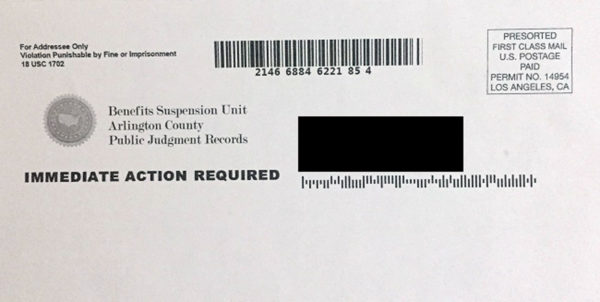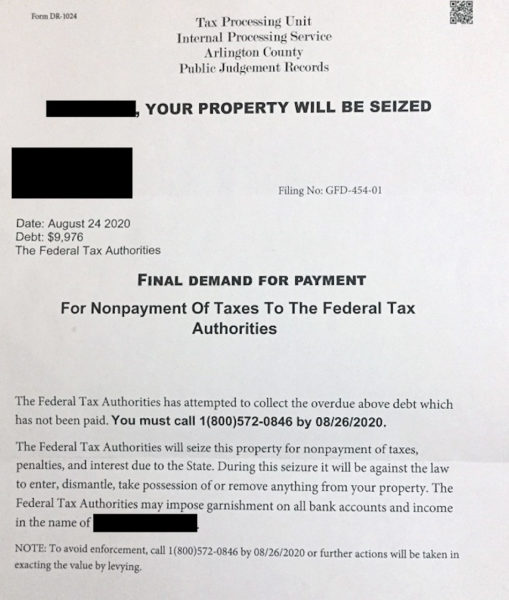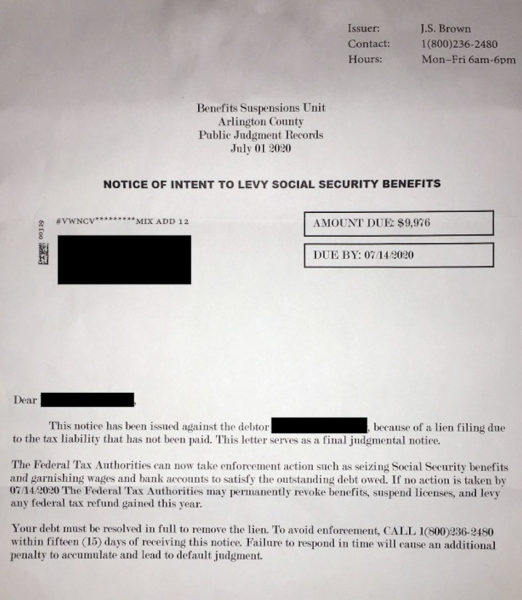Scammers are sending letters to Arlington residents, fraudulently claiming to be Arlington County authorities and threatening punishment if a debt is not paid over the phone.
The Arlington County Police Department issued a warning about the scam today, showing images of scam letters that appear to come from an official source. The scammers claim to be part of a non-existent “Benefits Suspension Unit” or “Tax Processing Unit,” and threaten to cut off Social Security benefits or seize wages, police say.
Those that receive such letters are encouraged to report them to police via an online form.
More from ACPD:
The Arlington County Police Department is warning the public about scam mailings that threaten individuals with seizure of their wages and Social Security benefits to satisfy alleged non-payment of taxes. Recipients are instructed to call a toll-free number by a set date or further enforcement action will be taken against them.
The mailings use a fraudulent government seal and are sent from the ‘Benefits Suspension Unit, Arlington County, Public Judgement Records’ and/or the ‘Tax Processing Unit, Internal Processing Service, Arlington County, Public Judgement Records.’ This office does not exist.
If you have been a victim or target of a scam in Arlington County, report to police using the online crime report.
Scammers may use various techniques to fool potential victims. Avoid becoming a victim by following these practices:
- Be suspicious of any unsolicited phone calls, emails, mailings or in-person solicitations which request funds or claim that you owe money.
- Never use a phone number provided to you from an individual making threats to verify their credibility. Use a verified phone number to contact a government agency if you’re concerned you might owe money.
- Avoid unusual payment methods. No government agency will instruct you to resolve your debt using a payment method such as Bitcoin, money wires, mailed cash or gift cards.
- Keep your information private. Don’t share your personal information with organizations you are unfamiliar with, don’t have ties to and did not initiate contact with.
- Take your time. If you are requested to act quickly or there is a stated emergency, it may be a scam. Scammers create a sense of urgency to get you to act impulsively.
- If it looks too good to be true, it probably is.




